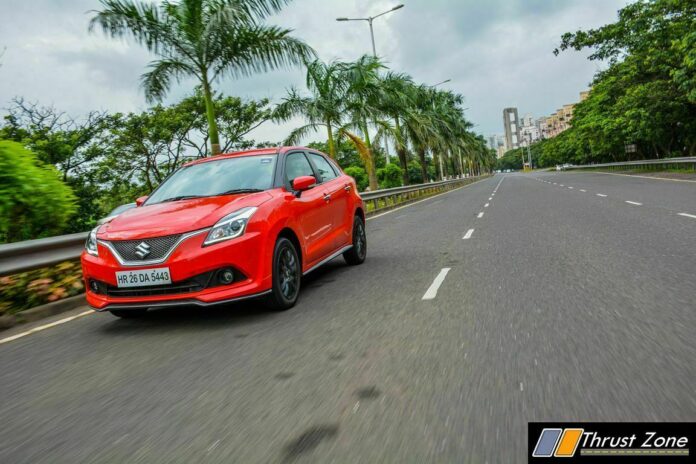The BS6 emission norms are kicking in from April 2020 and that will result in a number of BS4 compliant engines being phased out by the end of this month. All major manufacturers have spent enormous amounts of manpower and technology to upgrade their existing line-up of engines to meet BS6 norms. With the high costs involved, the new regulations have also pushed the market towards petrol powertrains once again. That being said, for several carmakers, it just made the most sense to develop a new engine than rework an existing power plant. So, with the 31st March deadline just a few days away, here are the petrol engines that will bid you adieu in the BS6 era of the Indian market.
Maruti Suzuki
India’s largest carmaker – Maruti Suzuki announced it will b going petrol-only post-April 2020, and the company has upgraded most of its petrol engines to the new regulations. However, the automaker has decided to pull the plug on the 1.0-litre Boosterjet engine that was offered on the Baleno RS. Introduced in 2017, the three-cylinder turbo petrol motor actually offered a good balance between power and efficiency. With 101 PS on offer, the motor was the answer to Ford 1.0-litre EcoBoost but never found acceptance in the market. Sadly, the engine was plonked in any other Maruti car either. With the Baleno RS being discontinued, the 1.0 Boosterjet wasn’t upgraded to BS6 norms and won’t be on sale anymore.
Hyundai
Hyundai Motor India has dropped the 1.6-litre naturally-aspirated petrol engine from its line-up. The motor powered the Verna and the Creta cars in the company’s stable. However, both cars are all set to get the new 1.5-litre petrol shared with the Kia Seltos that not only meets the new emission norms but is more powerful and efficient as well.
Tata Motors
Tata Motors will be discontinuing its age-old 1.2-litre four-cylinder Revotron turbo petrol motor that powered the Bolt and Zest cars. While the company has a strong line-up of diesel engines, it has also developed the new 1.2-litre three-cylinder engine that powers the Tiago, Altroz, while a turbocharged version is seen on the Nexon subcompact SUV. The new engine will also power other offerings in the Tata stable in the future. In addition, the Tata Tiago and Tigor JTP editions with the turbocharged 1.2-litre engine will be discontinued as well. With the partnership on hold, the performance-friendly versions won’t be upgraded to the BS6 norms, at least for now.
Mahindra
Mahindra has been quick to adapt to the new BS6 emission norms but the company will discontinue its single 2.2-litre petrol engine on offer. The motor powered the XUV500 petrol and was little in demand. Instead, the automaker has developed a new mStallion range of petrol engines starting from 1.2-litre to 2.0-litre that will power everything from the XUV300 to the next generation XUV500.
Ford
Another carmaker that will bid goodbye to a very capable engine. The Ford 1.0-litre EcoBoost has been killed in India. The motor powered only the EcoSport, and never found its way in another car from the automaker. On the bright side, Mahindra’s mStallion petrol range will power future Ford cars as well in the future, as part of both the companies joint venture.
Volkswagen Group
Volkswagen India has also moved to petrol-only strategy for the market and have discontinued the very capable 1.2-litre TSI motor. The engine powered the Polo and Vento models, paired with the equally capable 7-speed DSG automatic transmission and was a hoot to drive. The Volkswagen Vento and Skoda Rapid lose the 1.6-litre MPI petrol as well. The company now has the 1.0-litre three-cylinder turbo petrol instead that offers the same power output. Volkswagen Group is also discontinuing the 1.4-litre TSI motor that powered the Skoda Octavia, Audi A3 and the Audi A4. A new 1.5-litre TSI will replace this engine in the automaker’s stable.
Renault
French carmaker Renault will discontinue a number of its petrol engines starting from 0.8-litre motor that powers the Kwid and Datsun redi-GO, as well as the 1.5-litre petrol on the Duster. The 1.0-litre engine then will only power the Kwid and redi-GO, while there’s the new 1.3-litre TCe motor that replaces the 1.5-litre engine on the Duster.
Nissan
Japanese automaker Nissan will also discontinue the 1.5-litre petrol engine from its line-up. The motor powered the Nissan Kicks, Sunny and the Terrano in the company’s stable. The manufacturer though is likely to bring the new 1.3-litre turbo petrol that was showcased on the Renault Duster at the 2020 Auto Expo.
Toyota
Toyota Kirloskar Motor has already announced its transition from BS4 to BS6 norms and that has seen a number of petrol engines being dropped. This includes the 1.2-litre petrol that powers the Etios, Etios Liva and the Etios Cross, all of which will be discontinued. In addition, the 1.8-litre VVT petrol will be discontinued that powers the Corolla Altis sedan that’s also being phased out.
Fiat
Tata’s erstwhile partner Fiat has decided to leave the country, even as the FCA Group continues with the Jeep brand. The Italian brand will take its 1.2-litre FIRE petrol and 1.4-litre T-Jet engines from the Indian market. While the 1.2 FIRE was just about decent in terms of performance, we will miss the T-Jet motor. It was a noted rival to the famed TSI engines from Volkswagen and boasted of incredible power output. It was seen on the Fiat Linea, Punto, Urban Cross and the Avventura. It also powered the highly-likeable Abarth Punto making close to 140 PS.










